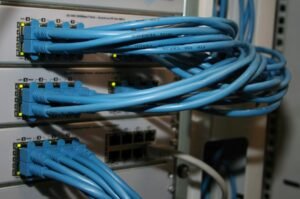AI Tools: Meaning
Artificial Intelligence (AI) has become a buzzword in recent years, and its impact on various industries cannot be ignored. AI tools, in particular, have revolutionized the way businesses operate and make decisions. In this article, we will explore the meaning of AI tools and their significance in today’s fast-paced digital world.
Key Takeaways
- AI tools are advanced software applications powered by artificial intelligence algorithms.
- These tools enable businesses to automate tasks, gain valuable insights, and improve decision-making processes.
- AI tools are utilized in a wide range of industries, including healthcare, finance, marketing, and customer service.
AI tools encompass a variety of software applications that leverage artificial intelligence technologies to perform specific tasks. In simple terms, AI tools are programs that can analyze and interpret data, learn from patterns, and make intelligent decisions. These tools utilize techniques such as natural language processing, machine learning, and computer vision to perform complex tasks that traditionally required human intelligence.
*Did you know that AI tools can process and analyze large volumes of data in seconds, significantly reducing the time and effort required for manual analysis?
One of the key benefits of AI tools is their ability to automate repetitive and time-consuming processes. By automating tasks that were previously performed manually, businesses can save time and resources. For example, AI-powered chatbots can handle customer inquiries and provide basic support, freeing up human agents to focus on more complex issues. This can lead to improved efficiency and enhanced customer satisfaction.
*AI tools offer businesses the opportunity to streamline their operations, reduce costs, and provide better customer experiences.
The Impact of AI Tools in Different Industries
AI tools have found applications in a wide range of industries, transforming the way businesses operate. Let’s take a closer look at how AI tools are making an impact:
Healthcare Industry
AI tools are revolutionizing healthcare by assisting in medical diagnoses, analyzing patient data, and predicting diseases. They can identify patterns and anomalies in medical images, helping radiologists detect abnormalities more accurately. Moreover, AI tools can analyze patient records to identify potential risks and recommend personalized treatment plans.
Finance Industry
AI tools are being used in the finance industry to detect fraudulent transactions, automate compliance processes, and provide personalized financial advice. These tools can analyze vast amounts of financial data and identify patterns that may indicate fraudulent activities. Additionally, AI tools can assess an individual’s financial situation and offer customized recommendations for investments, budgeting, and savings.
Marketing Industry
AI tools have transformed the way businesses approach marketing. They can analyze customer data to identify preferences, predict buying behaviors, and personalize marketing campaigns. AI-powered recommendation engines can suggest products or services based on individual preferences and previous purchasing behavior, increasing the likelihood of conversions. Furthermore, AI tools can automate the process of creating targeted advertisements, saving time and resources.
Important Data Points
| Industry | Key AI Tool Application |
|---|---|
| Healthcare | Medical image analysis and predictive diagnoses |
| Finance | Fraud detection and personalized financial advice |
| Marketing | Customer behavior analysis and personalized marketing campaigns |
*AI tools have played a crucial role in enhancing efficiency and decision-making processes in various industries.
The Future of AI Tools
The potential of AI tools is vast, and their impact on society and businesses will continue to grow. As AI technologies advance, these tools are becoming more sophisticated and capable of tackling even more complex tasks. From autonomous vehicles to smart home systems, AI tools will play an integral role in shaping the future.
Conclusion
AI tools have revolutionized the way businesses operate, offering automation, valuable insights, and improved decision-making capabilities. From healthcare to finance to marketing, these tools have made a significant impact in various industries. As AI technologies evolve, the potential for AI tools to transform industries and drive innovation is endless.

Common Misconceptions
Misconception 1: AI Tools can replace human workers entirely
Despite the advancements in AI technology, AI tools cannot completely replace human workers. While they can automate certain tasks and improve efficiency, they still require human oversight and intervention.
- AI tools enhance human productivity rather than replacing them
- Human creativity and critical thinking are still crucial in decision-making processes
- AI tools are designed to augment human capabilities, not eliminate jobs
Misconception 2: AI Tools are only for large organizations
Another common misconception is that AI tools are exclusively for large organizations with extensive resources. However, AI tools are becoming increasingly accessible and affordable for businesses of all sizes.
- Many AI tools offer scalable pricing models to accommodate different budgets
- Small businesses can leverage AI to streamline processes and improve customer experience
- A wide range of AI tools cater to various industries and business types
Misconception 3: AI Tools always provide accurate results
While AI tools are powerful, they are not infallible and can make mistakes. It is important to understand that AI algorithms are only as good as the data they are trained on and the assumptions made during their development.
- Data quality and relevance directly impact the accuracy of AI tools
- AI tools may struggle with complex tasks that require contextual understanding
- Regular monitoring and validation of AI tool outputs are necessary to ensure accuracy
Misconception 4: AI Tools are only for tech-savvy individuals
Many people assume that AI tools are only useful for individuals with advanced technical skills. However, AI tools are designed to be user-friendly and accessible to users with varying levels of technical expertise.
- Intuitive user interfaces and user-friendly documentation make AI tools accessible to non-technical users
- Training and support resources are available to help users get familiar with AI tools
- Many AI tools offer easy integration with existing software and platforms
Misconception 5: AI Tools are a threat to privacy and security
Privacy and security concerns are often associated with AI tools. However, responsible AI development and implementation prioritize data protection and user privacy.
- AI tools should comply with privacy regulations and best practices
- Data encryption and secure storage mechanisms are implemented to protect sensitive information
- User consent and transparency are essential in AI tool usage to address privacy concerns

The Rise of AI Tools in Everyday Life
As technology continues to advance at a rapid pace, artificial intelligence (AI) tools have become an integral part of our daily lives. From voice assistants to smart home devices, AI is revolutionizing the way we interact with technology. This article takes a closer look at some fascinating applications of AI tools that have transformed various industries.
Enhancing Healthcare with AI Diagnosis
In the field of healthcare, AI diagnosis tools have significantly improved patient care and medical decision-making. By analyzing vast amounts of patient data, these tools can accurately identify diseases and recommend appropriate treatment plans, leading to quicker diagnoses and better outcomes.
AI-Powered Personalized Shopping Experiences
Retailers are leveraging AI tools to deliver personalized shopping experiences to their customers. With the help of machine learning algorithms, these tools can predict customer preferences, make tailored product recommendations, and provide virtual try-on experiences, creating a seamless and enjoyable shopping journey.
Efficient Fraud Detection with AI
Financial institutions are employing AI tools for fraud detection, saving them from hefty losses. By analyzing transaction patterns and identifying anomalies, these tools flag suspicious activities in real-time, allowing for quick intervention to prevent fraudulent transactions.
Streamlining Supply Chain Management
AI tools have revolutionized supply chain management by optimizing inventory levels, predicting demand patterns, and automating logistics processes. This enables businesses to reduce costs, improve efficiency, and meet customer demands more effectively.
Predictive Maintenance in the Manufacturing Industry
The manufacturing industry has embraced AI tools for predictive maintenance. By analyzing sensor data and machine performance metrics, these tools can forecast equipment failures, schedule preventive maintenance, and minimize downtime, ensuring smooth production processes.
AI-Driven Language Translation
Breaking down language barriers, AI-powered language translation tools have made communication across different languages more accessible and accurate. By utilizing deep learning algorithms, these tools can translate text and speech while preserving context and meaning.
Driving Efficiency in Energy Conservation
Through AI tools, energy conservation efforts have been bolstered. Machine learning algorithms analyze energy usage patterns, detect inefficiencies, and recommend optimizations, making it easier for both individuals and organizations to adopt sustainable practices.
Revolutionizing Customer Service with Chatbots
AI-powered chatbots have transformed customer service by providing instant support and personalized assistance. These virtual agents use natural language processing to understand customer queries, provide relevant information, and resolve issues efficiently.
Precision Farming for Agricultural Success
AI tools are revolutionizing agriculture through precision farming techniques. By leveraging sensors, drones, and machine learning algorithms, farmers can optimize irrigation, monitor crop health, and predict yield, leading to increased productivity and sustainable farming practices.
In conclusion, the rise of AI tools is reshaping various industries, enhancing efficiency, improving decision-making, and providing innovative solutions. From healthcare to retail, finance to agriculture, AI is transforming the way we live and work. With continued advancements in AI technology, the possibilities for further applications and benefits are endless.
Frequently Asked Questions
AI Tools
What are AI tools?
AI tools are software applications or platforms that use artificial intelligence technologies to perform specific tasks, automate processes, or assist in decision-making.
How do AI tools work?
AI tools typically use algorithms and machine learning models to analyze data, identify patterns, and generate insights or predictions. They can be trained on large datasets and learn from experience to improve their performance over time.
What are some common applications of AI tools?
AI tools have various applications across industries, including natural language processing, image recognition, chatbots, recommendation systems, predictive analytics, speech recognition, fraud detection, and autonomous vehicles.
Can AI tools replace human workers?
AI tools can automate repetitive tasks, enhance productivity, and improve efficiency, but they are designed to work alongside humans rather than replace them entirely. AI technology still lacks the human touch and nuanced decision-making skills required for certain complex tasks.
Are AI tools safe to use?
AI tools can be safe to use when developed with proper security measures and ethical considerations. However, like any technology, they can also pose risks if not appropriately implemented or used. Privacy concerns, data biases, and potential algorithmic errors are some of the challenges associated with AI tools.
What skills do you need to use AI tools effectively?
Using AI tools effectively may require skills such as data analysis, programming, machine learning, and domain expertise. Additionally, an understanding of the limitations and ethical considerations associated with AI is crucial for responsible use.
Can AI tools learn from new data?
Many AI tools are designed to learn from new data. Through techniques like supervised, unsupervised, or reinforcement learning, AI models can adapt and improve their performance as they process and analyze new information.
What are the limitations of AI tools?
AI tools have limitations depending on the specific application. They may struggle with understanding context, making moral judgments, dealing with unforeseen scenarios, and requiring considerable computational resources. Additionally, biases in training data can lead to biased outcomes.
How can businesses benefit from using AI tools?
Businesses can benefit from using AI tools in numerous ways. They can automate tasks, improve decision-making, enhance customer experiences, optimize processes, identify patterns or trends, and boost efficiency and productivity, among other advantages.
Where can I find AI tools?
AI tools can be found from various sources, including software vendors, AI platforms, open-source communities, and online marketplaces. Researching and assessing different options based on your specific needs can help you find suitable AI tools.





